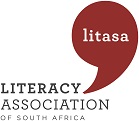Original Research
Nigerian Creole as language of instruction: Will Nigerian lecturers use Nigerian Creole?
Reading & Writing | Vol 6, No 1 | a75 |
DOI: https://doi.org/10.4102/rw.v6i1.75
| © 2015 Uju C. Ukwuoma
| This work is licensed under CC Attribution 4.0
Submitted: 26 January 2015 | Published: 09 December 2015
Submitted: 26 January 2015 | Published: 09 December 2015
About the author(s)
Uju C. Ukwuoma, Paris & Drina Consultancy, Houston, United StatesAbstract
This mixed questionnaire survey sought to determine if lecturers who learned to speak and understand Nigerian Creole before English are willing to use the language as medium of instruction. The respondents were comprised of 560 lecturers and graduate students (i.e. master’s, doctoral) selected through a purposeful random sampling frame from 15 public institutions of higher learning in Nigeria. Lecturers declined to use Nigerian Creole as medium of instruction because they feared that its use might negatively affect their students’ learning of English. Graduate students indicated willingness to receive instruction through a combination of English and Nigerian Creole because they perceived the use of Nigerian Creole as fun and representative of the voice of a new generation of Nigerians. The sample reported that prior knowledge of Nigerian Creole does not facilitate the learning of English because both languages are too different to facilitate a transfer of learning.
Keywords
No related keywords in the metadata.
Metrics
Total abstract views: 3941Total article views: 9923
Crossref Citations
1. Rural undergraduate university students’ learning challenges in Africa: case study of Nigeria and South Africa
Chinaza Uleanya
African Identities vol: 20 issue: 1 first page: 89 year: 2022
doi: 10.1080/14725843.2020.1813083
